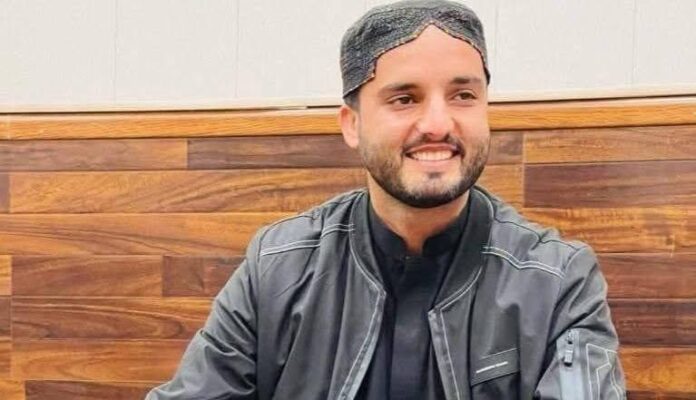Indian State Should Focus on Unconventional Methods: Jamal Nasir Baloch
Escalation of Abductions and Killings in Balochistan

Shoaib Bangulzaei
SHAAL (QUETTA): In the early hours of Monday, Shoaib Bangulzai son of Haji Deen Muhammad Bangulzai and former chairman of the Baloch Students Council at Bahauddin Zakariya University, was forcibly abducted by individuals in plain clothes from near his home in Gulshan-e-Iqbal, Karachi, around 2:30 AM.
Later that day, the Baloch Students Council Multan issued a statement condemning the disappearance. The Council revealed that Shoaib was a graduate of the Department of Public Administration at BZU Multan and had served as the chairman of the BSC Multan chapter. His leadership and academic background had made him a respected figure among Baloch youth.
The Council termed the abduction a deliberate attempt to suppress Baloch intellectual progress and described it as part of a long-standing campaign to target educated Baloch voices. “Graduates like Shoaib are the hope for uplifting our society’s intellectual and cultural spheres, yet they are treated with brutality and discrimination,” the spokesperson said.
The statement also highlighted the decades-long history of enforced disappearances in Balochistan, which has led to the psychological and physical torture of countless victims. The Council called on all human rights organisations, media outlets, and civil society groups to raise their voices for Shoaib’s immediate and safe release.
12 May 2025 – Jiwani, Gwadar: On the same night, in Jiwani, a coastal town in Gwadar, Sufi Tariq, a popular Baloch car racer, was reportedly abducted by Pakistani forces. Just a few hours later, his mutilated body was recovered from the Paleri area.
Tariq son of Ibrahim was widely admired among Baloch youth for his involvement in motorsports. His death has sent shockwaves across the community. Notably, he and his brother Salman had also been abducted on 22 February 2023 by the same forces, highlighting a recurring pattern of targeting individuals multiple times.
11 May 2025 – Gramkan, Panjgur: On Sunday, the bullet-riddled body of Waheed son of Karim Dad was found in the Rakhshan River near Gramkan, District Panjgur. The body was shifted to the DHQ Hospital Panjgur, where multiple gunshot wounds were documented.
Waheed, a resident of Isai Kor, had been forcibly disappeared on 31 March 2021 after being detained by Pakistani forces. His family and local sources confirmed he had remained missing since that time. This case is seen as another example of custodial killing, where individuals are tortured or executed while in the custody of state forces.
The discovery comes amid a surge in extrajudicial killings, with families of the disappeared living in continued fear and distress.
10 May 2025 – Hoshap, Kech and Panjgur: On Saturday, three bodies were brought to the Teaching Hospital Turbat’s morgue, which local sources confirmed were victims of a staged encounter by Pakistani forces in Hoshap, District Kech.
The three victims were identified as: Imran son of Abdul Wahid, a resident of Dashti Bazaar, forcibly disappeared on 9 April 2025 Hamid son of Mola Dad, a resident of Absar, abducted on 14 April 2025 and Irshad Zabad, who had been abducted from Kolwah by Pakistani forces in April 2025.
All three were in custody before their deaths and their bodies showed signs of torture and execution. Despite this, security forces claimed they were killed in an “armed encounter,” a tactic frequently used to legitimise extrajudicial killings.
In a separate but related incident that night, Lal Jan Elahi Bakhsh, a resident of Taplo Zamuran, was killed in District Panjgur when Pakistani forces opened fire on a moving vehicle. His family reports that the shooting was unprovoked and occurred while Lal Jan was travelling. He was buried in Turbat the next day.
The events of 10–12 May 2025 paint a grim picture of the ongoing human rights crisis in Balochistan. Enforced disappearances, custodial killings, and staged encounters have become systematic tools used against Baloch civilians, students and youth activists.
Despite national and international appeals, accountability remains absent, and state violence continues unchecked. Families of the disappeared are left to suffer in silence and those who speak up risk becoming the next victims. Civil society groups and human rights defenders are urgently called for immediate international attention and intervention to halt these abuses and bring justice to the victims.









